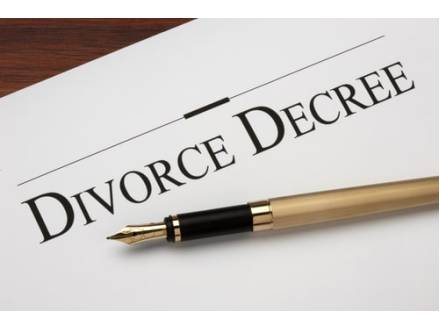
 817-498-4105
817-498-4105
Office location in Hurst
Is Texas Headed Toward an End to No-Fault Divorce?
 The state of Texas is experiencing heated debates surrounding no-fault divorce, which allows couples to divorce without alleging (and proving) a specific "fault." Texas has a unique approach to divorce, with a hybrid blend of fault-based and no-fault systems. If a couple decides to file under the no-fault law, they must only say their marriage cannot continue due to incompatibility without showing any wrongdoing.
The state of Texas is experiencing heated debates surrounding no-fault divorce, which allows couples to divorce without alleging (and proving) a specific "fault." Texas has a unique approach to divorce, with a hybrid blend of fault-based and no-fault systems. If a couple decides to file under the no-fault law, they must only say their marriage cannot continue due to incompatibility without showing any wrongdoing.
No-fault divorces tend to go much more smoothly and are quicker and simpler overall. The state also allows a spouse to file based on a specific fault. This decision can potentially impact such things as child custody and the division of marital assets, but it has negative aspects as well. Whether you choose to file under the state's no-fault laws or believe a fault-based divorce is right for you and your situation, having an experienced Hurst divorce lawyer from Daniel R. Bacalis, P.C. by your side can make all the difference in how your divorce progresses.
Pros and Cons Regarding No-Fault Divorce
No-fault divorce typically results in a more amicable separation between couples because it removes the need to prove fault. When one spouse alleges fault and must prove that fault in all its messiness, a fairly civil divorce can quickly become contentious, and an already contentious divorce can escalate. A no-fault divorce makes the process quicker and less adversarial and may encourage spouses to work together toward solutions they can both live with.
For spouses in an abusive marriage, no-fault divorce can potentially give those spouses a small level of safety. Few abusers want their transgressions on display in court—and may respond with more violence. No-fault divorce also benefits an already overburdened court system. The negative aspects of no-fault divorce really depend on your own personal perspective but generally include:
- No-fault divorce could weaken the entire institution of marriage; those who are against no-fault divorce believe it does not foster stability or commitment.
- Some people believe no-fault divorce diminishes the personal responsibility aspect of divorce.
- If the "fault" in the marriage was particularly egregious, it may go unaddressed during a no-fault divorce. Therefore, decisions made in a divorce may not be entirely just or equitable.
If a spouse is abusive, a serial adulterer, or has had a serious addiction that impacted the marriage, no-fault divorce does not address those issues. This could make the spouse who suffered through these issues bitter that a no-fault divorce fails to "punish" the other spouse through a smaller share of the marital assets or limited visitation with the children. Because Texas does offer both options, discussing the issue with an experienced divorce attorney is always the best course of action.
Are There Any Alternatives to No-Fault or Fault-Based Divorces?
After California became the first state in 1969 to implement no-fault divorce, Texas followed suit quickly in 1970. No-fault divorce has generally become the primary way marriages are ended—both in Texas and across the U.S. Some states have introduced other options like covenant marriages. Covenant marriages require couples to undergo premarital counseling and restrict any future grounds for divorce to adultery or abuse.
Other alternatives include waiting periods prior to a divorce and mandatory mediation. Texas law requires a 60-day waiting period before a judge will finalize a divorce—even when the divorce is uncontested. Although mediation is not a mandate for divorce in the state, some courts will order it when the couple cannot agree on a single aspect of their divorce.
Contact a Tarrant County, TX Divorce Attorney
If you are considering divorce, have already decided to file, or have just been served divorce papers, you have an important decision to make. This decision involves speaking to a legal professional with extensive knowledge about the Texas divorce process.
At Daniel R. Bacalis, P.C., we will guide you through the process, letting our experience help you make decisions that could affect your life for many years to come. When your divorce attorney is a board-certified family law specialist, you immediately have an advantage. Contact a Hurst, TX divorce attorney from Daniel R. Bacalis, P.C. at 817-498-4105 to schedule your free consultation.









